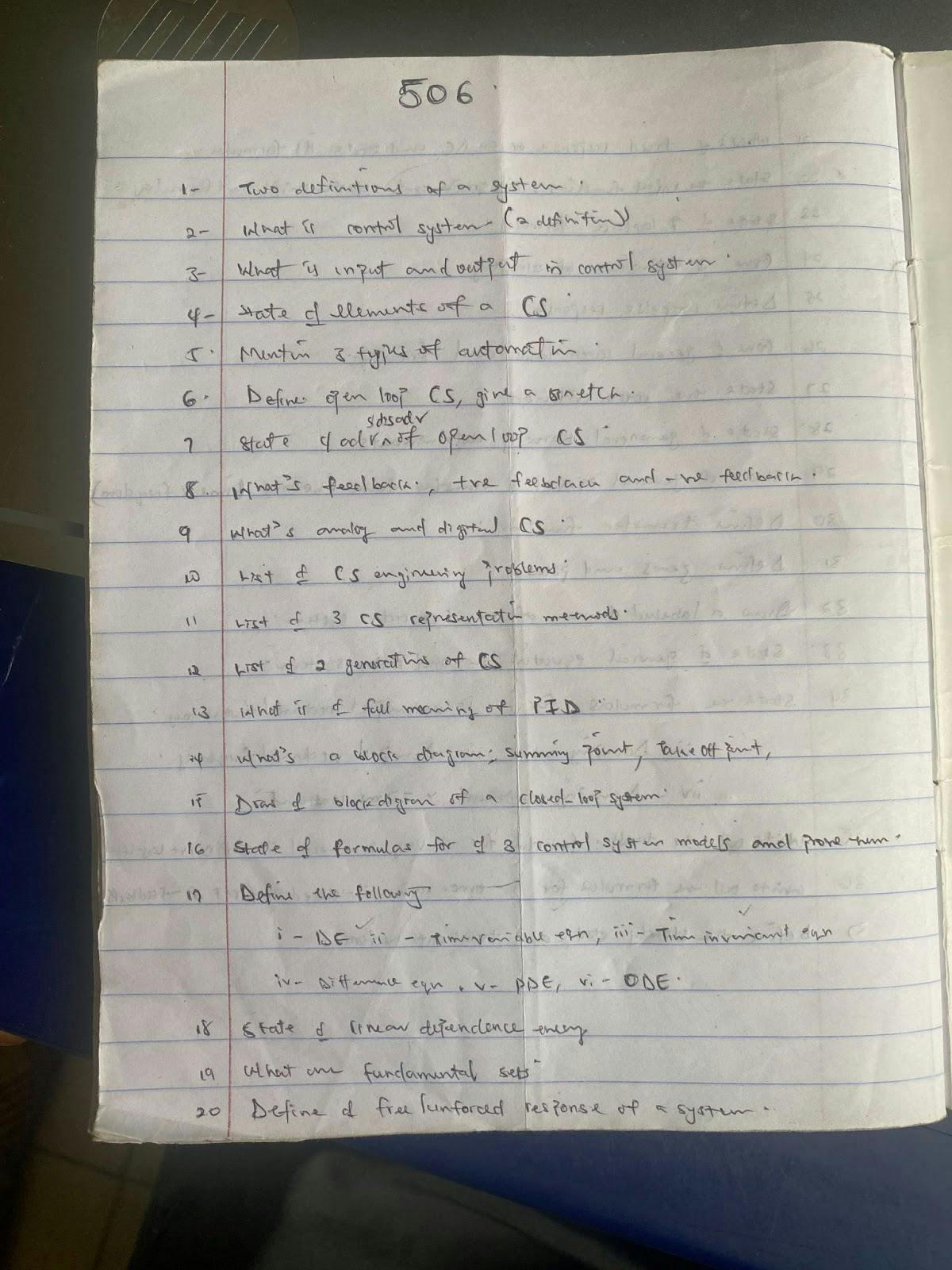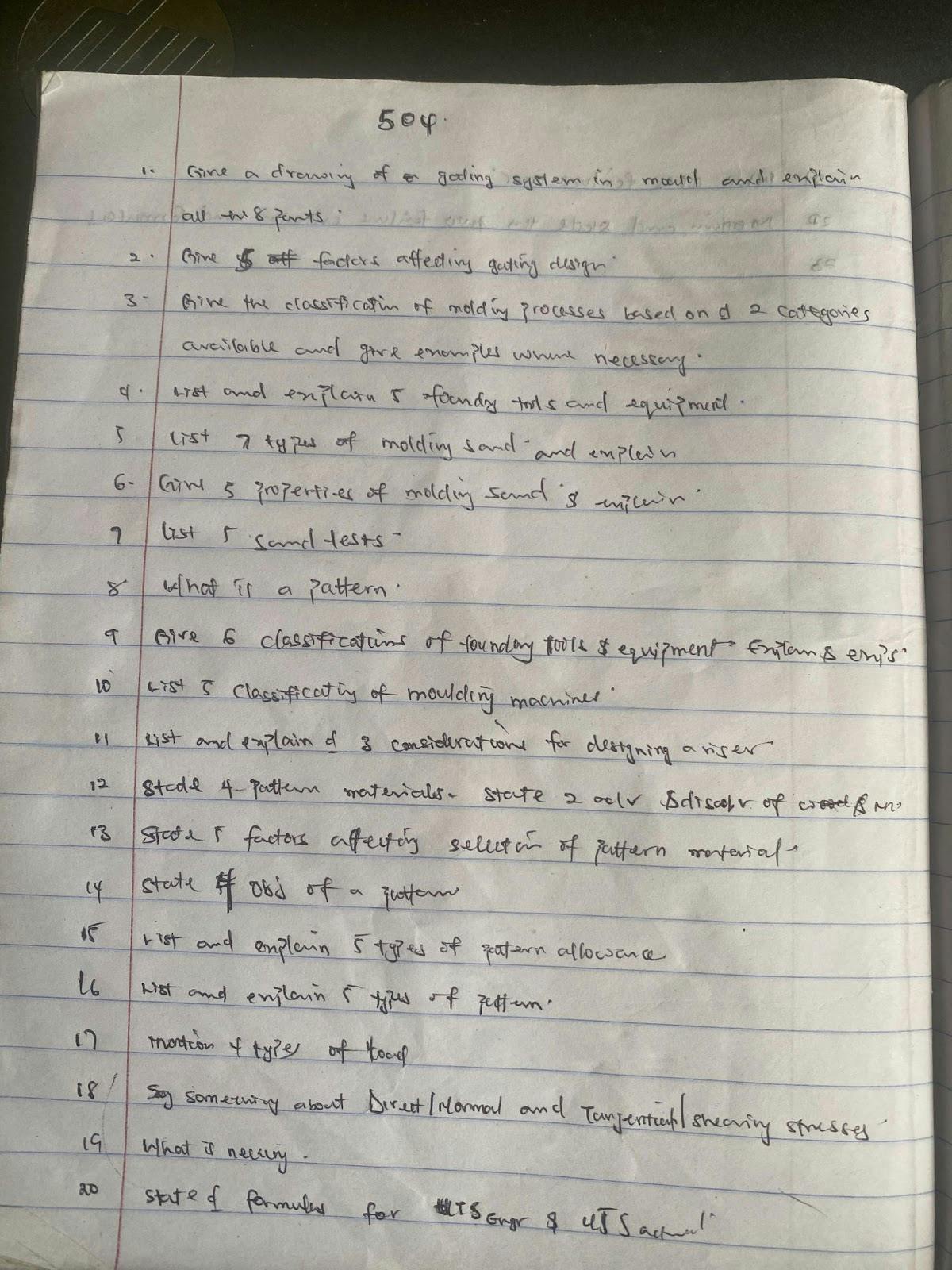Introduction
In this article, I talk about how I balanced schooling and working in tech, as I’ve observed that it seems to be quite an arduous task for many of us. The truth is that it’s difficult, but not impossible. Before we go on, I’d like to get a few things out.
Success metrics are different. This article talks about how I achieved mine. It would be best if you defined yours first, then see how this article helps you achieve them.
These are the strategies that worked for me. You’re expected to modify them to suit you.
I focus more on managing school because, in my experience, people often lean towards choosing only tech when it seems impossible to manage both.
I worked remotely and for African companies. It's important to note that the dynamics may vary for individuals engaged in on-site work, employed by companies located outside of Africa, or who have physical businesses.
I only talk about what I did in my human power and wisdom: "And my success is not but through Allah. Upon him I have relied, and to Him I return." (Suratul Hud 11:88).
Fun fact
Why I’m writing this:
While I would very much love this to impact as many people as it reaches, I had a few people in mind when writing it. These are people dear to me and are treading a similar path and have reached out to seek guidance. I’d love nothing more for them than to attain even more massive feats; so I thought I’d leave them a guide.
Why you should strive for balance:
Schooling, especially in Nigeria, is tough. You shouldn’t go through the harsh system without gaining something tangible.
People not studying computer science or software engineering have some edge in the sense that they come from different backgrounds and, as such, have diverse views of things. People in this situation also have the opportunity to use technology to solve certain pain points in their fields. (I did something similar in my final year project). They wouldn’t be aware of these areas if they didn’t take their education seriously.
Schooling is an endeavor with a bounded timeline. You could always pick up tech at any point again. So why not do the best you can and forget about it?
I’d rather have something I do not need than need something I do not have. You should too
A little about me
I’m a recent graduate of Industrial and Production Engineering, FUTA. I finished with a CGPA of 4.77/5.0. I picked up programming in late 2018—just after completing my 100 level—and I have since explored the worlds of artificial intelligence and backend engineering. I currently work as a backend engineer.
During my stay in school, I:
Was my department’s class representative.
served as an MSSN FUTA executive and on several other committees.
Taught tutorials
Played football for my department and masjid.
Google developer students’ club core team member (2020) and tutor for the AI/ML track.
I played a lot of mobile PES and table tennis to relax.
I worked multiple roles at some point and still managed to write nice results. So maybe, to some extent, I've got some credibility to talk about this topic.

Core values
In this section, I talk about the values and mindsets required to be embodied by an individual seeking to balance school and work.
- Hard work*:*
The value of hard work can’t be overstated. At some point, you would have to sacrifice sleep, hangouts, and fun just to get some important things done or meet some deadlines. You need to be able to push yourself some extra miles and focus on the end goal. Having said that, towards the end of my undergraduate program, I maintained a consistent sleep schedule because I figured having a good rest was just as important as getting my tasks done.
Put in your best and leave the rest to Allah. They planned, but Allah also planned. And Allah is the best of planners (Suratul Anfal 8:30).
- Humility:
This is also a very important value for everyone to possess. You have your strengths and weaknesses. Being humble enough to consult others for assistance in areas where you are weak is crucial and will always prove useful.
I was fortunate to have learned this very early on. A short story: I resumed university quite confident in my abilities; after all, I cleared all the required examinations in one sitting, independently. Little did I know that this confidence was about to receive its first reality check. A few weeks into resumption, I attended a night class (overnight studying session) with two of my friends to study chemistry (CHE101). We decided to study a topic that was taught in class but wasn’t quite clear. My friends understood the topic in a matter of a few hours, but I didn’t. Three days later, I was still on the same topic. Eventually, I requested one of my two friends to help with it, and they gladly obliged. In less than an hour, I understood the topic. This was a wake-up call for me. This experience showed that the university was a different ballgame. People know better than you; you should learn and benefit one another rather than compete.
Be willing to learn from people, and more importantly, be willing to teach the little you know to people. It's always better for the entire squad to win.
And do not turn your cheek [in contempt] toward people and do not walk through the earth exultantly. Indeed, Allah does not like everyone self-deluded and boastful (Suratul Luqman 31:18).
- Communication:
From the experience shared above, you realize that if only I’d asked for help earlier, I probably wouldn’t have struggled for that long.
Learn to communicate with people. Even when you’re humble enough to realize you need help, you need to learn to ask for help.
Everyone I’ve worked for knows I’m a student. I let them know right at the interview stage. But I also back it up with the fact that I’m a first-class student, and everything I know and have done, I did while maintaining my grades. This usually does the trick so that they are not too bothered. This short confession during the interview stage serves as a precursor and lets them know I will at some point take breaks (leaves) for exams, that I will at some point be in class and can’t speak at meetings, but I will get the job done.
Communication, coupled with good relationships with my managers and team leads, affords me flexibility during examinations.
Please note:
I have only worked for companies in Africa.
I also know people who don’t disclose this, and they still manage fine.
Remember, I’m only sharing my experience.
Beyond the grades, the university is a great place to meet lifelong friends. Communication helps you a great deal to network with those you love to associate with.
- Teamwork and delegation:
In the “About Me section”, I mentioned I was a class representative. This role required me to manage the day-to-day affairs of my class. Myself and my assistant were the communication bridge between the management and my class. I had to fix lecture periods favorable to the lecturers and my class, search for venues, collect assignments, organize events, partake in stakeholders' meetings, and so on.
I had very lovely colleagues, and I didn’t have to do all that by myself. At some point, being the class rep was more of a team-leader role. Through the years, I had people willing to assist with some of these tedious tasks, and all I mostly did was assist, follow up, and take feedback from lecturers. A very amazing group and I’m very grateful to have studied with them. Again, this reinforces the ideas of humility and communication.
- Organization and time management:
How you manage your time is essential to how productive you get on a particular day.
Make it a habit to plan out how you want your day to go. It’s best to write it down and assign time blocks for each activity. This way, even if something unplanned comes along, you know precisely where you stopped and where you should pick up.
Assigning time blocks for activities is important so that you do not spend too much of your time on a few activities.
You should be realistic with these plans. The number of activities you wish to complete in a day and the time blocks for each activity, or else you put yourself under undue pressure.
You should also plan for rest! There could be times when you are reluctant to get productive and just want to sleep, chat with friends, watch movies, or play games. You don’t necessarily have to pressure yourself into immediately getting productive. You could spare an extra hour doing that thing. If it’s occurring too frequently, you could apply the x-seconds rule to immediately get to work.
Organization speaks to the fact that you have to be strategic about your plans. You should work smart. I will talk more about this in the next section.
- Goal oriented:
Don’t lose sight of the goal. It’s okay to rest and play but remember, it’s always a new day to be a world-class engineer, designer, food scientist, or PM. So make the 24 hours count.
- Friendships:
You won’t always have the energy to get up and keep combining school and work. You would get low on energy when you don’t get that job or if a result wasn’t what you anticipated. In these moments, you need to have people to support you. Someone will tell you it’s not over until the final whistle.
You need a circle that motivates you to be your best. I have a circle that constantly makes me feel like I’m only playing, 😅 and it’s only day one, every day. For example, my roommate can wake up at any time in the night to study (or work). Imagine how I feel every time I turn in the night and he is still up 😂. I have another friend who, after long hours of being in class, only needs to eat and he is ready to study till late into the night again. Now, you tell me, how do I rest while surrounded by folks like this? I also had friends who mentored me in tech. I look forward to every discussion with them because they are usually value-packed. At times, I feel I’m merely a product of the friends I keep. I’m grateful to every one of them.
Lastly, understand your limits, your system, and what works for you. Your circle should motivate you to be your best, not unnecessarily pressure you. If you’re not the type that can stay up at night to study, then sleep early to wake up early to study or work.
- Honesty:
Except you want to lie to yourself, talking and exchanging answers in exams and tests, except otherwise stated, is wrong. Having the mindset that you’re alone once you’ve been served your question papers brings a different energy to studying. You put more effort into studying because you know that there’s no way you will have answers to things you didn’t study if they ever come out.
Strategies
- Attending lectures
I briefly talked about this in my 2023 in retrospect article. Attending lectures was a core part of my study strategy. For me, studying has two phases; understanding and retention. The first step towards understanding for me was to be in class when the lecturer was presenting the topic. I get introduced to the topic, understand the scope of the topic for the course, and get the opportunity to ask the lecturer or my classmates for the parts I do not understand right in the class. As a result of this approach, studying the topic at home is just a matter of me reviewing all we did in class, rewriting my notes in my own words, breaking down complex aspects, and solving more examples. I understand that I have an advantage in the sense that, virtually all my lecturers taught well and cared that we understood. If that’s not the case for you, you may be better off spending those hours in the library or some tutorial center.
- Studying: Spaced repetition... duhh😏
Were you expecting some magic tips 💀? Of course, you still have to study hard.
Continuing from Attending lectures, I try to go over my courses at least two or three times. The number of repetitions became significantly lower towards my last years in school as I had many more responsibilities. That was my strategy. I know I am no genius and I almost forget things I read after about one or two weeks. So I try to repeat as many times as possible.
Notes:
Jot fings down😉 : During my first study, I always write a good note, where I bring things to my level and I spend a lot of time trying to understand everything. I waste no time asking my classmates when I find something difficult. I’d rather someone explained something to me in five minutes than figure it out myself after an hour. Remember, we’re doing everything to save time.
If I don’t jot down while studying, everything feels volatile, and I’m not just comfortable moving on until I write some notes. Except you know your memory is super good, you should always jot things down; in fact, write good notes.
During tests and exams, I jot down a course repeatedly. For example, rather than trying to abstractly recall a formula or a definition, I write it down, thereby improving the muscle memory to solve such problems.
Revise on a rolling basis: Along with your spaced repetition, you could also revise on a rolling basis. Every time you want to read a new topic in a particular course, you briefly revise every other topic you previously studied. So when you’re, for example, studying the fifth topic in a course, you would have read the first topic five times and the second four times, and so on. You can begin to reduce how far back you go in your brief revisions as the number of topics gets larger. Your revisions also get faster since you will most likely remember the first set of topics.
Try to study (hard topics) within 24 hours of being taught in class so that you will be able to build off the understanding from the class while it’s still fresh.
I also meet with my friends to get their well-jotted notes to study. This speeds up my studying since I don’t have to do extra research. Someone has done all the hard work, and they were gracious enough to share the knowledge gained in that process.
- Teaching others
This was a strategy that worked early in my undergraduate days but was impossible to maintain towards the end due to larger responsibilities. Teaching others forces you to understand the topic because you want to be able to bring the topic down to everyone’s level so that everyone understands.
In 200L, my friends and I split our challenging courses amongst ourselves and took turns teaching them to ourselves. I ended up with a 95A in the course I taught. In a bid to teach the course to my friends, I ended up deeply understanding the course as well. Win-win.
While it may be time-consuming to take tutorials, you could sacrifice portions of your time to help out others. You are, in reality, helping yourself too.
- Setting questions while studying:
This was one of my favorite and most important strategies, as it helped me to study voluminous courses. The problem I had with voluminous courses was that I didn’t know what I remembered or what I’d forgotten 😭. At times, it takes a day or half to traverse a course during exams only for me to get back to the earlier topics and realize I’d forgotten 😭.
The strategy involves setting questions as you read along. This is usually a concise list of questions that give an overview of the entire course. So revising a topic is as simple as attempting the questions you've set. If you’re thorough with your questions, you might even set some questions you’d find in your exam 😉. The number of questions you set depends on how voluminous the course is, I’ve had to set about eighty practice questions for a fully theoretical course (my worst nightmare 😭).


- Have a mentor in your department.
It helps greatly to have someone in your department to guide you. They should be just a year ahead of you so that their memories of your courses are still intact. You should meet with them at the beginning of each semester for their materials, notes, past questions, motivation, and, most importantly, orientation about the courses you will be offering that semester.
Their insights about your courses and how they navigated them are very crucial and may help you breeze through the courses by learning from their experiences.
Final words:
It won’t be easy. There are days you will go from meetings to classes to meetings back to classes, then coding.
You would have to constantly think about saving energy and time and, as such, spend a lot on getting non-consequential things done.
Time management is crucial. You don't have to be involved in everything happening around you.
Pray like you never have to study, and study like you never have to pray.
Start strong. It creates a foundation to absorb whatever shocks occur along the way.
As a friend would say, collaboration over competition.
Lastly, I'm not the only one who was able to manage these responsibilities; I'd love to hear from people with similar experiences.
Well!

Till next time,


